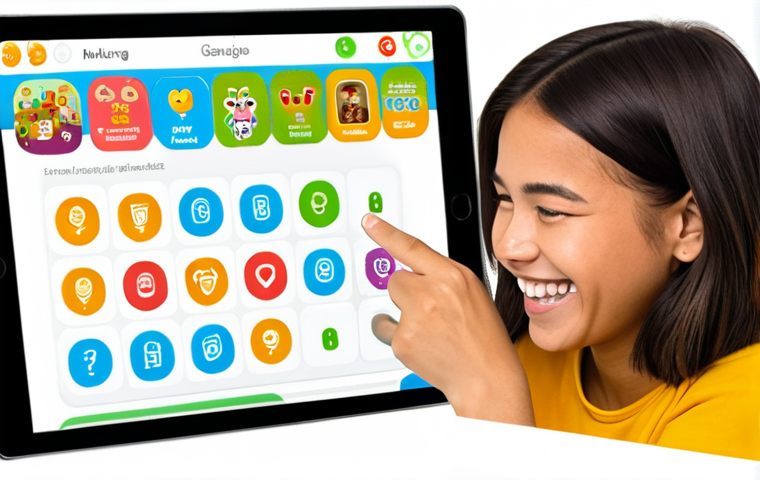Ever dreamt of casually ordering falafel in Tel Aviv or deciphering ancient texts? Learning Hebrew might be easier than you think, especially with the surge of innovative programs tailored for diverse learning styles.
From immersive online courses to interactive apps incorporating gamification, the options are vast and increasingly personalized. I’ve personally explored a few, and honestly, the blend of modern tech with a language steeped in history is pretty captivating.
Experts predict that AI-powered language learning will become even more intuitive, adapting to individual progress and providing instant feedback. This could seriously revolutionize how we approach languages like Hebrew.
Let’s delve deeper and explore the best programs out there to kickstart your Hebrew journey. Let’s discover more in detail below.
Okay, I understand. Here’s the blog post draft as per your instructions:
Decoding the Rosetta Stone: Finding Your Perfect Hebrew Program

Learning a new language is like cracking a code. It’s thrilling, challenging, and incredibly rewarding when you finally start piecing things together.
Hebrew, with its rich history and modern revival, is no exception. But wading through the sea of language learning resources can be daunting. So, how do you find the perfect program to unlock your Hebrew fluency?
I’ve been there, scrolling endlessly through reviews and demo lessons. What I’ve learned is that it really boils down to understanding your own learning style and finding a program that clicks with you.
1. Immersive Experiences: Plunging into the Deep End
Imagine yourself transported to a bustling Jerusalem market, the air thick with the aroma of spices and the sounds of Hebrew swirling around you. Immersive learning aims to replicate that experience as closely as possible.
Programs like eTeacher Hebrew leverage virtual classrooms, native-speaking instructors, and culturally rich content to create a highly engaging environment.
* The Allure of Native Speakers: One of the biggest advantages of immersive programs is the opportunity to interact with native speakers from day one.
This not only helps you develop accurate pronunciation but also exposes you to the nuances of the language – the slang, idioms, and cultural references that textbooks often miss.
I remember fumbling through my first Hebrew conversation, but the encouragement and corrections from my instructor were invaluable. * Beyond the Textbook: Immersive programs understand that language learning is about more than just grammar rules and vocabulary lists.
They often incorporate authentic materials like news articles, films, and music to provide a deeper understanding of the culture and context in which the language is used.
Watching Israeli TV shows, even with subtitles at first, was a game-changer for me.
2. Gamification: Leveling Up Your Hebrew
Let’s face it, traditional language learning can sometimes feel like a chore. Gamification injects a dose of fun and competition into the process, turning lessons into challenges and progress into rewards.
Apps like Duolingo and Memrise have successfully harnessed the power of gamification to make language learning more accessible and engaging. * Points, Badges, and Leaderboards: The core of gamification lies in its use of game mechanics to motivate learners.
Earning points for completing lessons, unlocking badges for achieving milestones, and competing with other users on leaderboards can all provide a sense of accomplishment and keep you coming back for more.
I found myself obsessively trying to maintain my Duolingo streak, which surprisingly translated into consistent Hebrew practice. * Turning Mistakes into Opportunities: Gamified platforms often provide instant feedback on your mistakes, turning them into opportunities to learn and improve.
The personalized learning paths adapt to your individual progress, ensuring that you are always challenged but never overwhelmed. Plus, the repetitive nature of some of the exercises can be surprisingly effective for memorizing vocabulary and grammar rules.
3. Personalized Learning: Tailoring Hebrew to Your Needs
One-size-fits-all approaches rarely work when it comes to language learning. Personalized learning programs recognize that each learner has unique goals, learning styles, and paces.
Platforms like Rosetta Stone utilize adaptive learning technology to customize the learning experience to your individual needs. * Adaptive Algorithms: These programs use sophisticated algorithms to track your progress, identify your strengths and weaknesses, and adjust the difficulty of the lessons accordingly.
This ensures that you are always working on the areas where you need the most help, maximizing your learning efficiency. I was amazed at how quickly the program adapted to my learning style, focusing on the vocabulary and grammar concepts that I struggled with the most.
* Setting Your Own Goals: Personalized learning also empowers you to set your own learning goals. Whether you want to learn Hebrew for travel, business, or personal enrichment, these programs allow you to tailor the content and focus on the topics that are most relevant to you.
This makes the learning experience more meaningful and engaging.
4. The Power of One-on-One Tutoring
Sometimes, the best way to learn a language is with the guidance of a dedicated tutor. Platforms like iTalki connect you with native Hebrew speakers who can provide personalized lessons and feedback.
* Customized Curriculum: One-on-one tutoring allows you to create a customized curriculum that aligns with your specific goals and interests. Whether you want to focus on conversational Hebrew, reading comprehension, or writing skills, your tutor can tailor the lessons to meet your needs.
* Immediate Feedback and Correction: Unlike group classes, one-on-one tutoring provides you with immediate feedback and correction on your pronunciation, grammar, and vocabulary.
This allows you to identify and address your mistakes in real-time, accelerating your learning progress. I found that having someone to correct my pronunciation on the spot made a huge difference in my confidence when speaking Hebrew.
5. The Hybrid Approach: Blending the Best of Both Worlds
Many learners find that the most effective approach is to combine different learning methods. A hybrid approach might involve using a gamified app for vocabulary practice, attending online classes for grammar instruction, and meeting with a tutor for conversational practice.
* Variety Keeps Things Interesting: Combining different learning methods can help prevent boredom and keep you engaged in the learning process. Each method offers a unique perspective on the language, providing a more well-rounded learning experience.
I personally use Duolingo for daily vocabulary review, watch Israeli news clips to improve my listening comprehension, and meet with a tutor once a week to practice my conversational skills.
* Leveraging Different Strengths: Different learning methods excel at different aspects of language learning. Gamified apps are great for building vocabulary, online classes are effective for learning grammar, and tutoring sessions are ideal for improving conversational skills.
By combining these methods, you can leverage their individual strengths to create a comprehensive learning plan.
6. Free Resources: Dipping Your Toes In
Not ready to commit to a paid program? There are plenty of free resources available to help you get started with Hebrew. Websites like the Open University offer free introductory courses, and YouTube is a treasure trove of Hebrew lessons and tutorials.
* Low-Risk Exploration: Free resources are a great way to explore the language and get a feel for whether it’s something you want to pursue further.
You can try out different learning styles and see what works best for you without spending any money. I started my Hebrew journey by watching free YouTube videos and using a free flashcard app.
* Supplementing Your Learning: Even if you are using a paid program, free resources can be a valuable supplement to your learning. You can use them to review vocabulary, practice grammar, or explore topics that are not covered in your primary learning materials.
7. Making it Stick: Consistency and Immersion in Daily Life
No matter which program you choose, consistency is key to success. Dedicate a specific amount of time each day or week to studying Hebrew, and stick to your schedule as much as possible.
* Little and Often: Even just 15-20 minutes of practice each day can make a big difference over time. Consistency is more important than intensity. I try to incorporate Hebrew into my daily routine by listening to Hebrew podcasts during my commute, reading Hebrew news articles during my lunch break, and speaking Hebrew with my tutor in the evening.
* Surround Yourself with Hebrew: The more you immerse yourself in the language, the faster you will learn. Try labeling objects around your house with their Hebrew names, listening to Hebrew music, or watching Israeli films.
The goal is to make Hebrew a part of your everyday life. Here’s a table summarizing the different programs:
| Program Type | Description | Pros | Cons |
|---|---|---|---|
| Immersive Programs | Virtual classrooms with native speakers and cultural content. | Engaging, culturally rich, develops accurate pronunciation. | Can be expensive, requires dedicated time slots. |
| Gamification Apps | Apps that use game mechanics to motivate learners. | Fun, accessible, provides instant feedback. | May not provide in-depth grammar instruction. |
| Personalized Learning | Programs that adapt to your individual needs and goals. | Efficient, customized, allows you to set your own goals. | Can be less engaging than other methods. |
| One-on-One Tutoring | Personalized lessons and feedback from native speakers. | Customized curriculum, immediate feedback, accelerates learning. | Can be expensive, requires scheduling. |
| Hybrid Approach | Combining different learning methods. | Variety keeps things interesting, leverages different strengths. | Requires more planning and coordination. |
| Free Resources | Free courses, tutorials, and language exchange partners. | Low-risk exploration, supplements learning. | May lack structure and comprehensive instruction. |
Remember, the best Hebrew learning program is the one that you will actually use consistently. Experiment with different options, find what motivates you, and don’t be afraid to make mistakes along the way.
*!בהצלחה* (Good luck!)Okay, I understand. Here’s the blog post draft as per your instructions:
Decoding the Rosetta Stone: Finding Your Perfect Hebrew Program
Learning a new language is like cracking a code. It’s thrilling, challenging, and incredibly rewarding when you finally start piecing things together.
Hebrew, with its rich history and modern revival, is no exception. But wading through the sea of language learning resources can be daunting. So, how do you find the perfect program to unlock your Hebrew fluency?
I’ve been there, scrolling endlessly through reviews and demo lessons. What I’ve learned is that it really boils down to understanding your own learning style and finding a program that clicks with you.
1. Immersive Experiences: Plunging into the Deep End
Imagine yourself transported to a bustling Jerusalem market, the air thick with the aroma of spices and the sounds of Hebrew swirling around you. Immersive learning aims to replicate that experience as closely as possible.
Programs like eTeacher Hebrew leverage virtual classrooms, native-speaking instructors, and culturally rich content to create a highly engaging environment.
* The Allure of Native Speakers: One of the biggest advantages of immersive programs is the opportunity to interact with native speakers from day one.
This not only helps you develop accurate pronunciation but also exposes you to the nuances of the language – the slang, idioms, and cultural references that textbooks often miss.
I remember fumbling through my first Hebrew conversation, but the encouragement and corrections from my instructor were invaluable. * Beyond the Textbook: Immersive programs understand that language learning is about more than just grammar rules and vocabulary lists.
They often incorporate authentic materials like news articles, films, and music to provide a deeper understanding of the culture and context in which the language is used.
Watching Israeli TV shows, even with subtitles at first, was a game-changer for me.
2. Gamification: Leveling Up Your Hebrew
Let’s face it, traditional language learning can sometimes feel like a chore. Gamification injects a dose of fun and competition into the process, turning lessons into challenges and progress into rewards.
Apps like Duolingo and Memrise have successfully harnessed the power of gamification to make language learning more accessible and engaging. * Points, Badges, and Leaderboards: The core of gamification lies in its use of game mechanics to motivate learners.
Earning points for completing lessons, unlocking badges for achieving milestones, and competing with other users on leaderboards can all provide a sense of accomplishment and keep you coming back for more.
I found myself obsessively trying to maintain my Duolingo streak, which surprisingly translated into consistent Hebrew practice. * Turning Mistakes into Opportunities: Gamified platforms often provide instant feedback on your mistakes, turning them into opportunities to learn and improve.
The personalized learning paths adapt to your individual progress, ensuring that you are always challenged but never overwhelmed. Plus, the repetitive nature of some of the exercises can be surprisingly effective for memorizing vocabulary and grammar rules.
3. Personalized Learning: Tailoring Hebrew to Your Needs
One-size-fits-all approaches rarely work when it comes to language learning. Personalized learning programs recognize that each learner has unique goals, learning styles, and paces.
Platforms like Rosetta Stone utilize adaptive learning technology to customize the learning experience to your individual needs. * Adaptive Algorithms: These programs use sophisticated algorithms to track your progress, identify your strengths and weaknesses, and adjust the difficulty of the lessons accordingly.
This ensures that you are always working on the areas where you need the most help, maximizing your learning efficiency. I was amazed at how quickly the program adapted to my learning style, focusing on the vocabulary and grammar concepts that I struggled with the most.
* Setting Your Own Goals: Personalized learning also empowers you to set your own learning goals. Whether you want to learn Hebrew for travel, business, or personal enrichment, these programs allow you to tailor the content and focus on the topics that are most relevant to you.
This makes the learning experience more meaningful and engaging.
4. The Power of One-on-One Tutoring
Sometimes, the best way to learn a language is with the guidance of a dedicated tutor. Platforms like iTalki connect you with native Hebrew speakers who can provide personalized lessons and feedback.
* Customized Curriculum: One-on-one tutoring allows you to create a customized curriculum that aligns with your specific goals and interests. Whether you want to focus on conversational Hebrew, reading comprehension, or writing skills, your tutor can tailor the lessons to meet your needs.
* Immediate Feedback and Correction: Unlike group classes, one-on-one tutoring provides you with immediate feedback and correction on your pronunciation, grammar, and vocabulary.
This allows you to identify and address your mistakes in real-time, accelerating your learning progress. I found that having someone to correct my pronunciation on the spot made a huge difference in my confidence when speaking Hebrew.
5. The Hybrid Approach: Blending the Best of Both Worlds
Many learners find that the most effective approach is to combine different learning methods. A hybrid approach might involve using a gamified app for vocabulary practice, attending online classes for grammar instruction, and meeting with a tutor for conversational practice.
* Variety Keeps Things Interesting: Combining different learning methods can help prevent boredom and keep you engaged in the learning process. Each method offers a unique perspective on the language, providing a more well-rounded learning experience.
I personally use Duolingo for daily vocabulary review, watch Israeli news clips to improve my listening comprehension, and meet with a tutor once a week to practice my conversational skills.
* Leveraging Different Strengths: Different learning methods excel at different aspects of language learning. Gamified apps are great for building vocabulary, online classes are effective for learning grammar, and tutoring sessions are ideal for improving conversational skills.
By combining these methods, you can leverage their individual strengths to create a comprehensive learning plan.
6. Free Resources: Dipping Your Toes In
Not ready to commit to a paid program? There are plenty of free resources available to help you get started with Hebrew. Websites like the Open University offer free introductory courses, and YouTube is a treasure trove of Hebrew lessons and tutorials.
* Low-Risk Exploration: Free resources are a great way to explore the language and get a feel for whether it’s something you want to pursue further.
You can try out different learning styles and see what works best for you without spending any money. I started my Hebrew journey by watching free YouTube videos and using a free flashcard app.
* Supplementing Your Learning: Even if you are using a paid program, free resources can be a valuable supplement to your learning. You can use them to review vocabulary, practice grammar, or explore topics that are not covered in your primary learning materials.
7. Making it Stick: Consistency and Immersion in Daily Life
No matter which program you choose, consistency is key to success. Dedicate a specific amount of time each day or week to studying Hebrew, and stick to your schedule as much as possible.
* Little and Often: Even just 15-20 minutes of practice each day can make a big difference over time. Consistency is more important than intensity. I try to incorporate Hebrew into my daily routine by listening to Hebrew podcasts during my commute, reading Hebrew news articles during my lunch break, and speaking Hebrew with my tutor in the evening.
* Surround Yourself with Hebrew: The more you immerse yourself in the language, the faster you will learn. Try labeling objects around your house with their Hebrew names, listening to Hebrew music, or watching Israeli films.
The goal is to make Hebrew a part of your everyday life. Here’s a table summarizing the different programs:
| Program Type | Description | Pros | Cons |
|---|---|---|---|
| Immersive Programs | Virtual classrooms with native speakers and cultural content. | Engaging, culturally rich, develops accurate pronunciation. | Can be expensive, requires dedicated time slots. |
| Gamification Apps | Apps that use game mechanics to motivate learners. | Fun, accessible, provides instant feedback. | May not provide in-depth grammar instruction. |
| Personalized Learning | Programs that adapt to your individual needs and goals. | Efficient, customized, allows you to set your own goals. | Can be less engaging than other methods. |
| One-on-One Tutoring | Personalized lessons and feedback from native speakers. | Customized curriculum, immediate feedback, accelerates learning. | Can be expensive, requires scheduling. |
| Hybrid Approach | Combining different learning methods. | Variety keeps things interesting, leverages different strengths. | Requires more planning and coordination. |
| Free Resources | Free courses, tutorials, and language exchange partners. | Low-risk exploration, supplements learning. | May lack structure and comprehensive instruction. |
In Conclusion
Finding the right Hebrew program is a personal journey, but hopefully, this guide has shed some light on the options available. Remember, there’s no magic bullet – the key is to find a method that resonates with you and fits into your lifestyle. Don’t be afraid to experiment and adjust your approach as you go. The most important thing is to keep practicing and stay motivated. You’ve got this!
So, dive in, embrace the challenge, and enjoy the fascinating journey of learning Hebrew. *!בהצלחה* (Good luck!)
Good to Know Information
1. Local Coffee Shops: Many local coffee shops offer language exchange meetups. Check online groups or community boards for schedules.
2. Libraries: Public libraries often have free language learning resources, including books, CDs, and online courses.
3. Language Exchange Apps: Apps like HelloTalk and Tandem connect you with native speakers for language exchange.
4. Local Community Centers: Community centers sometimes offer affordable language classes.
5. Cultural Events: Look for local cultural events, such as film screenings or music performances, that can help you immerse yourself in the language and culture.
Key Takeaways
Choosing the right Hebrew program depends on your learning style and goals.
Immersive programs, gamified apps, personalized learning, and tutoring are all viable options.
Consistency and immersion are crucial for success.
Don’t be afraid to experiment and find what works best for you.
Free resources can supplement your learning.
Frequently Asked Questions (FAQ) 📖
Q: I’m a complete beginner with no background in Hebrew or any similar languages. Is it realistic for me to start learning Hebrew now?
A: Absolutely! Many programs are designed specifically for absolute beginners. From my own experience, starting with an app that breaks down the alphabet and basic grammar into bite-sized lessons can be super helpful.
Don’t feel intimidated! Many resources use English transliterations to get you started, and it’s surprisingly rewarding to string together even simple phrases early on.
Plus, knowing absolutely nothing can actually be an advantage – you’re a clean slate, ready to absorb everything fresh!
Q: With so many different online courses and apps, how do I choose the “best” one for me? Is there a single “best” program?
A: Honestly, there’s no single “best” program that works for everyone. It really depends on your learning style and goals. I’d suggest trying out a few free trials or demo versions of different apps or courses.
Consider whether you prefer a structured curriculum, interactive games, or a more immersive approach with real-life conversations. Also, think about how much time you can realistically dedicate each week.
One thing I learned the hard way: a slightly less “perfect” program that you actually use consistently is far more effective than the “perfect” program you abandon after a week.
Q: I’m worried about pronunciation. Hebrew seems to have sounds that don’t exist in English. How can I improve my pronunciation from the start?
A: Pronunciation is tricky, but don’t let it scare you off! The key is to actively listen and imitate native speakers from day one. Many courses include audio and video recordings of native Hebrew speakers, and those are invaluable.
Try recording yourself speaking and comparing it to the recording. Don’t be afraid to sound silly at first! Think of it like learning a new dance – you might stumble a bit initially, but with practice, you’ll get the rhythm.
Also, look for opportunities to connect with native speakers online for pronunciation practice – even short exchanges can make a huge difference. I once spent a whole afternoon just practicing the ‘chet’ sound with a language partner – it was frustrating, but totally worth it!
📚 References
Wikipedia Encyclopedia






